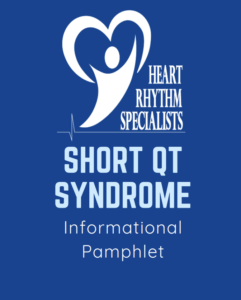What is SQTS?
Short QT Syndrome (SQTS) is a rhythm abnormality in which the Q-T interval is much shorter than normal.
The Q-T interval is a measurement of the time it takes the heart to recharge (repolarize) after contracting.
How is SQTS Diagnosed?
Dr. Yoo will use a combination of
a physical exam, past medical history, family history
and testing, which may include:
- electrocardiogram (ECG/EKG)
- stress test
- electrophysiological (EP) study
- genetic testing
Risk Factors include:
- past family history of SQTS
Causes of SQTS include:
- Short QT Syndrome mainly occurs in people who have a family history of SQTS as it is a genetic disorder.
Symptoms of SQTS
Although sometimes symptoms
don’t present themselves, they
include:
- palpitations
- shortness of breath (SOB)
- fatigue
- fainting (syncope)
- dizziness
- atrial fibrillation
- heart attack
- ventricular tachycardia (VT)
Treatments for SQTS
Treatment for Short QT Syndrome may include:
- an implantable cardioverter defibrillator (ICD)
- medication that regulates the rhythm abnormality or regulates arrhythmias
Additional Resources
